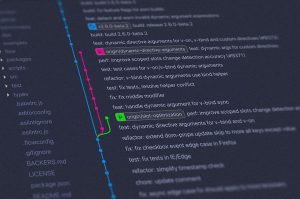Is Your CMS Ready for AI Search Reality?
5 min read
Artificial Intelligence (AI) is revolutionizing the way people search for and interact with content online. Traditional keyword-based searches are being replaced with AI-enhanced tools that understand intent, context, and semantics. In this shift, Content Management Systems (CMS) are being pushed to evolve rapidly. The question now arises for digital marketers, publishers, and businesses alike: Is your CMS ready for the AI search reality?
Understanding the AI Search Evolution
AI-powered search engines use machine learning, natural language processing (NLP), and semantic understanding to deliver more accurate and user-intent-oriented results. This goes beyond scanning for exact keyword matches—AI search engines can assess the context of a query and even anticipate what information might be most helpful to the user.
Platforms like Google are already employing AI technologies such as BERT and MUM to simulate human-like understanding in processing search queries. As user behavior continues to shift—opting for conversational queries and voice-assisted search—businesses must ensure their CMS architecture can support content that aligns with these modern search practices.

How AI Search is Challenging Traditional CMS
Most legacy CMS platforms were designed for a simpler web environment. Their structures are often rigid, primarily focused on content entry, storage, and display rather than how content is found, interpreted, and ranked by AI-driven platforms.
Challenges include:
- Poor metadata structures: Traditional CMS often lacks advanced metadata fields to enrich content context, which is crucial for AI interpretation.
- Limited content modeling: AI search benefits from dynamic, modular content versus monolithic pages. Many CMS platforms are still page-focused instead of content object-focused.
- Insufficient semantic tagging: AI search engines rely heavily on structured data. Many CMS systems do not support semantic HTML, schema.org integration, or context-rich tagging by default.
Signs That Your CMS Needs an Upgrade
To determine whether your CMS is AI-ready, consider the following symptoms of an outdated setup:
- You receive minimal organic traffic despite frequent content updates.
- Your site lacks structured data markup.
- Pages are slow to load or poorly optimized for mobile devices.
- You can’t easily integrate or access content APIs.
- Your CMS does not support voice search optimization strategies.
If any of these describe your current situation, your CMS is likely hindering your ability to capitalize on AI search advancements.
Key CMS Features That Support AI Search Optimization
To stay competitive in the AI-driven search era, your CMS must evolve to accommodate the technologies and practices that power context-based discovery. Here are several features and capabilities that a truly AI-ready CMS should offer:
- Structured Data Integration: Your CMS should allow easy incorporation of schema.org or JSON-LD to enable semantic content relationships that AI can understand.
- Content APIs and Headless Architecture: A headless CMS separates the content backend from the presentation layer, making it easier to deploy content across channels and optimize it for AI systems.
- Natural Language Search Support: The CMS should be designed to work well with NLP-optimized content, including long-tail keywords and conversational phrases.
- Dynamic Content Modeling: It must allow custom content types and relationships that serve both human users and AI algorithms.
- Performance Optimization: Fast-loading, mobile-friendly pages improve UX and indirectly affect AI-powered ranking algorithms.

Why Semantic SEO Matters More Than Ever
Semantic SEO is about creating meaningful connections between pieces of content through internal links, context-rich metadata, and structured data markup. AI search engines scan content not just for relevance, but also for interconnectedness and hierarchical value. A CMS that allows granular internal linking, descriptive tagging, and contextual data integration is essential for success in this new era.
It’s no longer enough to simply produce quality content—how you structure and label that content matters just as much.
Steps to Make Your CMS AI-Ready
If your current CMS is falling short, you don’t always need to overhaul it from scratch. Instead, consider the following steps to move toward a more AI-compatible structure:
- Audit Your Content: Assess how well your current content is structured and tagged.
- Integrate Structured Data: Use schema.org attributes where applicable and ensure your metadata is clear and robust.
- Consider a Headless CMS: If flexibility is lacking, moving to a headless system can help future-proof your strategy.
- Update Content Models: Redevelop your content types to be more modular and API-accessible.
- Collaborate with SEO and Data Specialists: Align your tech stack with experts who understand both search behavior and AI mechanisms.
Remember, the goal isn’t just visibility, but discoverability—and that requires a foundation built to align with AI logic.
Benefits of Having an AI-Ready CMS
The benefits of optimizing your CMS for AI-enhanced search experiences are tangible:
- Improved Search Rankings: Semantic-rich content drives better results.
- Higher Engagement: Contextual and personalized content attracts more meaningful interactions.
- Future Scalability: An AI-ready CMS is typically modular, making it easier to adapt to future technologies.
- Cross-Channel Publishing: Deliver content to users wherever they are—desktop, mobile, voice assistants, and beyond.

Conclusion
The digital ecosystem is transforming rapidly, and AI is at the heart of that evolution. A CMS that fails to support modern search strategies puts businesses at risk of losing visibility, ranking, and conversion opportunities. Upgrading your CMS to be AI-ready is not just a technical improvement—it’s a strategic investment in your digital presence and future growth.
Frequently Asked Questions
-
What is an AI-ready CMS?
An AI-ready CMS is one that supports structured data, semantic tagging, content APIs, and performance optimization, making it more suitable for AI-powered search engines. -
Do I need a headless CMS to support AI search?
Not necessarily, but a headless CMS provides greater flexibility and is better equipped to deliver content optimized for various search platforms and AI interfaces. -
How can I tell if my CMS supports structured data?
Check if your CMS offers functionality or plugins that let you embed schema.org or JSON-LD markup. Some CMS platforms have built-in SEO tools that handle this. -
Is AI search only relevant for large websites?
No. AI-powered search impacts all sizes of websites. Whether you’re a blog or an enterprise site, optimizing your CMS for AI is essential to remain discoverable. -
What happens if I ignore AI-search trends?
You may experience a decline in organic traffic, falling rankings, and less engagement. Staying static in a rapidly evolving search ecosystem puts your site at risk.



